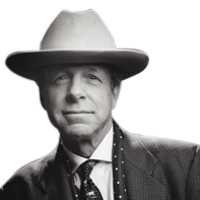It’s no surprise President Obama officially kicked off his reelection campaign on two college campuses Saturday. You’re supposed to apply pressure at the site of bleeding. And the president’s support among young voters is bleeding away.
Though their elders vote at higher rates, the millennial generation, aged 18 to 29, represented almost one in six votes in the 2008 presidential election. And they voted for Obama over Sen. John McCain by a 2–1 margin.
While others in the media are focused on the upward trend in the president’s approval ratings over the last four months in this age group, as shown in the latest survey of young Americans’ attitudes toward politics and public service from Harvard University’s Institute of Politics, there are troubling signs for the campaigns and the country embedded more deeply in the numbers.
A snapshot comparison of the college-age subset of millennials from this point in the 2012 election year versus the same point in the 2008 campaign (when only 18- to 24-year-olds were surveyed) should worry Team Obama.
Young millennials today are dramatically less politically engaged and less enthusiastic. Just 64 percent are registered to vote, compared to 73 percent four years ago. The number who say they are definitely voting in the presidential election has dropped significantly from 64 percent to 47 percent. And a majority of those registered or unregistered say that either their vote would not matter or they are unsure.
President Obama is in trouble. Just 50 percent of college-age youth approve of his performance overall; that’s 5 points less than their 25-to-29-year-old peers. While that general measure is trending upward from a low point in December 2011, just 39 percent of the younger millennials approve of his handling of the economy. And only 43 percent think Obama will win reelection, with 29 percent thinking he will lose and 28 percent unsure.

Finally, in a head-to-head matchup with Romney, Obama wins only 41 percent support, a significant drop from actual votes from this group in 2008.
But the picture isn't bright for Mitt Romney, either.
“Although this generation is not as supportive of President Obama and Democrats as they may have been in the historic 2008 campaign, this in no way implies that the Republican Party has successfully captured the hearts, minds, and votes of millennials,” says Harvard Institute of Politics polling director John Della Volpe.
In direct competition with the president, Romney wins only 29 percent support. That’s less than what Ron Paul would win against Obama in an imaginary matchup and less than the poll support John McCain won from young millennials in the spring-2008 survey. And when Romney’s supporters were asked if they would volunteer for his campaign, less than a third said they would engage versus more than half of Obama’s supporters.
Still, the president’s targeted messaging to this group about student-loan rates may miss the mark.
“It’s jobs, stupid.” Of 20 issues presented to the young millennials polled, 78 percent rated jobs as the most important. Only 31 percent of those in college or with some college education thought student-loan debt would create “a lot” of impact on their financial circumstances going forward.
In terms of policies and priorities, the group appears more right of center than imagined. Almost four in 10 believe cutting taxes is key to growth. Just 19 percent think government spending is the answer. And those who believe health insurance is a right dropped from 61 percent in 2008 to 43 percent in 2012.
The top-10 issues ranked in importance for this cohort were creating jobs, reducing the deficit, lowering the tax burden for all, becoming energy-independent, ensuring affordable access to health care, creating a world-class education system, addressing Social Security, preventing the spread of terrorism, protecting individual liberties from government, and preventing Iran from acquiring a nuclear weapon. Combating the impacts of climate change fell near the bottom of the list.
Surprisingly, little support is expressed by 18- to 24-year-olds for the Occupy Wall Street protests, at 19 percent. (A plurality of 42 percent are unsure.)
And, sadly, trust in public institutions is low, with the military trusted all or some of the time by 45 percent, followed by the Supreme Court at 35 percent and the president at 32 percent. The United Nations and local and state governments are trusted more than the federal government. But Congress is still at least ahead of Wall Street, which scrapes the bottom of the list offered.
Perhaps the most stunning finding from the Harvard poll is this: just 36 percent believe it is honorable to run for public office.
But there is hope. Young millennials in 2012 are more understanding of the relevance of politics in their lives, and though only 20 percent believe the country is on the right track, this is actually an improvement. They appear slightly more optimistic and less concerned about the moral direction of the country.
As we've learned in recent elections, turnout matters—increasingly so. With more of the national debt saddled on this generation than all others, it is the blood, sweat, and tears of young millennials the campaigns need to work for.






